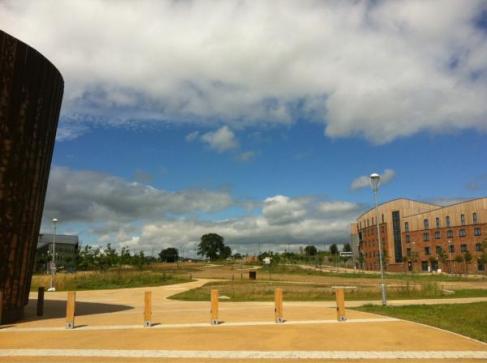It has been two weeks since I presented my paper at the ‘Co-production of Knowledge: Social media, STS and…’ conference in the University of York. I have met a lot of interesting people who are doing similar research and I could possibly collaborate with in the future.
I presented my pilot study in the big theatre with 23 audiences, which was quite good attendance considering it was the afternoon of the last day of the 3 day conferences. Among the audience, we did a little survey and found about 1/4-1/3 of them had academic blogs. Some questions were raised, such as whether I’d analyse online content rather than interviewing people, whether there is a difference between blogs for research and for teaching students. These are good questions that I can reflect upon and consider in my future research.
Some presentations were very relevant to my research area and I also enjoyed meeting their presenters, such as Dominika Czerniawska with her Open Access paper, Mark Dang-Anh with his Twitter Algorithms paper. I missed Rene Konig’s presentation as it was at the same time as mine, but his research sounded really interesting and I’d love to learn more about it.
The downside of this trip to York was that I got food allergy and ended up in hospital emergency department on the first night. Staying in the York University campus and being so remote to city centre and all the resources didn’t help when I had problem at night time. Luckily I recovered quickly the next day and everything ran smoothly afterwards including my presentation on the last day. So the lesson is bringing all kinds of medication that might be needed and being careful next time—don’t get too tired! Conference could be very exhausting and stressful, especially when you are a PhD student with nerves!
Looking forward to my next conference trip though! 🙂


